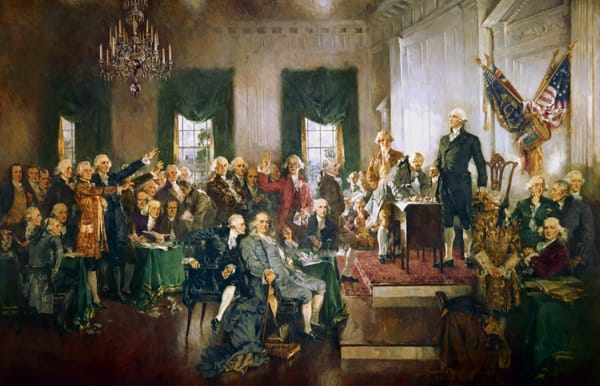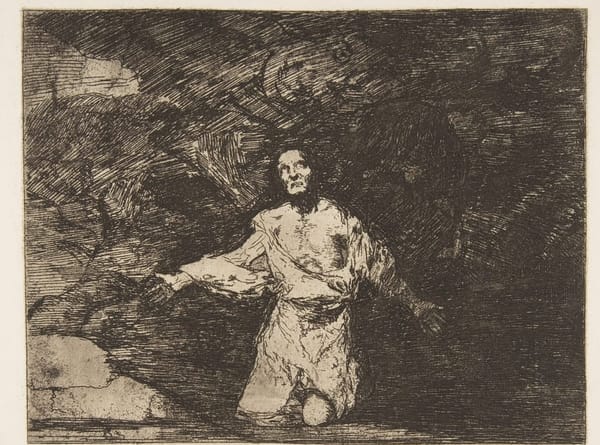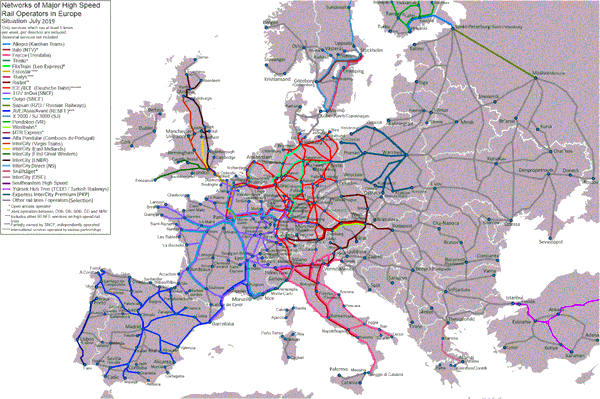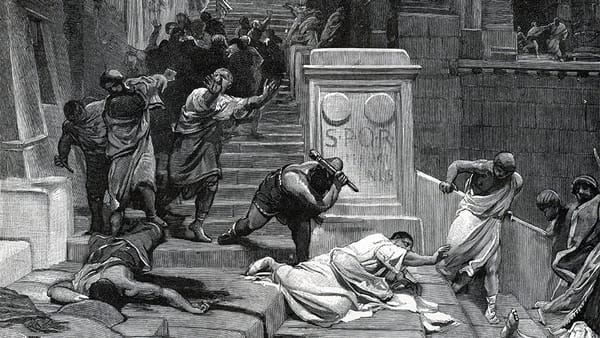All In Our Heads: On Losing Our Democracy and Life Beyond Our Imaginations
Our language has to meet the moment, and we have to be relentless about dispelling the fiction MAGA is selling.
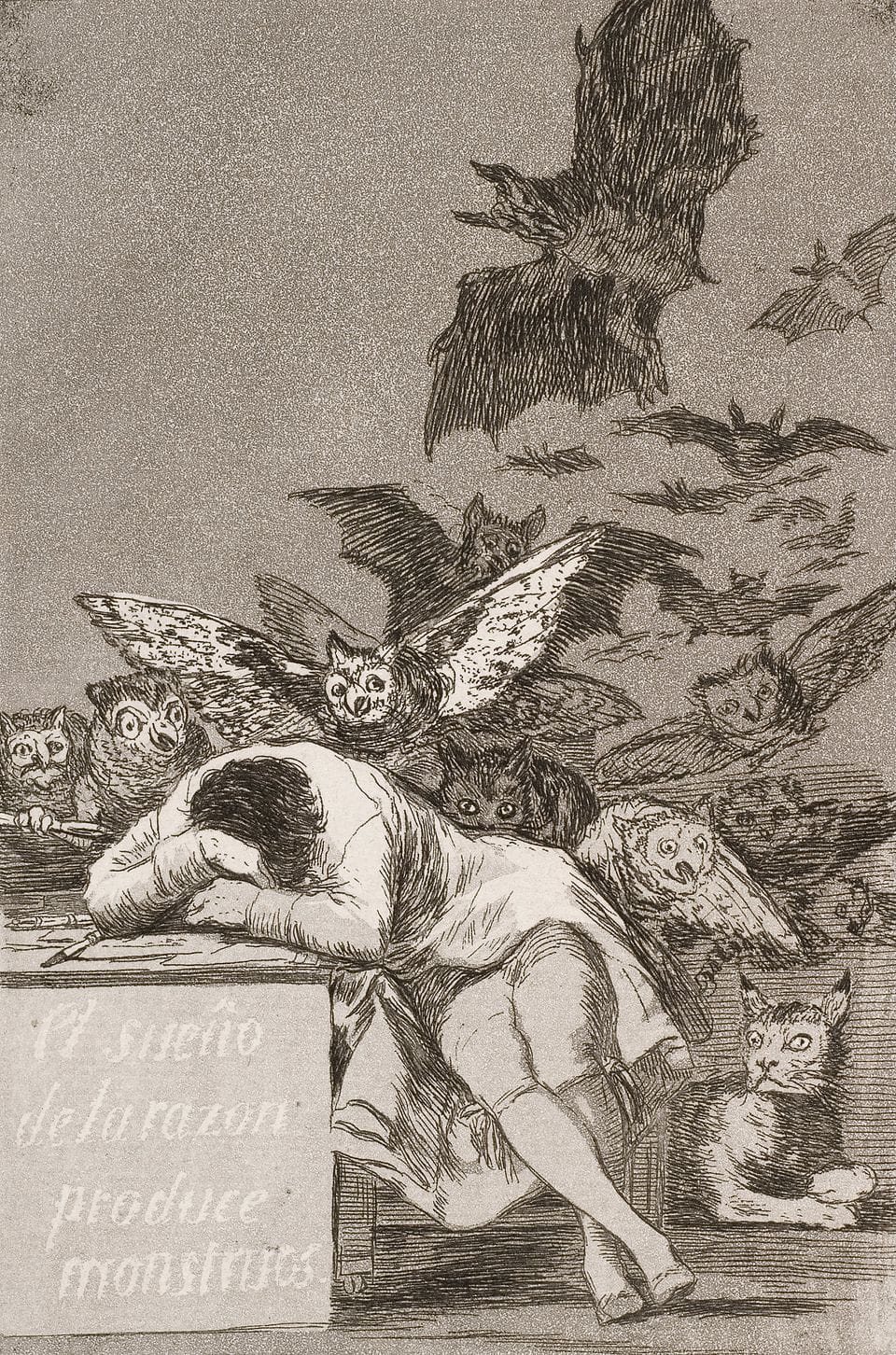
Trumpism is, as has been said so many times now, built on the big lie—yes, the Big Lie about the election, but also the myriad big lies about life in this country: crime is everywhere, the economy is booming, the jobs numbers are untrustworthy, immigrants are invading us, our allies are leeches, etc.
But all that lying, all that fantastical thinking, can also be directed inward. The process of the United States being made into a new thing—a competitive authoritarian country that cannot be said to wholly resemble the America of 2024, much less the one of 2015—is wildly jarring. It upsets the stories we have told ourselves about who we are and the ones we have to keep telling ourselves to keep the panic at bay as the news headlines roll in. At the same time, we can easily live day-to-day lives where the reality of what’s happening never has to penetrate our thoughts. We can shop, eat, watch our shows, and scroll our infinite scrolls without needing to think about or confront the loss of our freedoms taking place in real time.
What I want to explore here is how the current crisis is also about what’s happening in our heads, about the facts we accept and the ones we don’t. And it’s about how we maintain our own little worlds, worlds where things aren’t quite as bad as they seem or where they’re simply not happening at all.
I’ve gone to California in my mind
This past weekend, the Oregon GOP posted to its official accounts in support of President Trump’s planned deployment of National Guard troops to Portland—an action that was blocked by a federal judge on Monday. These posts featured an image of civil unrest, complete with riot police in full gear and angry protesters, all meant to show that Portland is indeed the hellscape Trump has claimed. Yet, as Robert Mackey noted at The Guardian this week, the image was a doctored mashup of two different images, neither from Portland.
The police in the photo came from a 2008 image in the Getty archive, and the protesters in the the scene were taken from a 2017 photograph in Brazil uploaded to Pexels.
On Tuesday, Slate’s Lizzie O’Leary pointed out that a CNN article headlined “What is the insurrection act?” had utilized a photograph of a burning Winchell’s Donuts from the 1992 Los Angeles riots as its featured image. O’Leary commented, “This picture is from 1992 in LA and using it in this post and story shows terrible news judgment.” It’s a fair criticism.
These two pictures and their detachment from reality struck me as separate parts of a whole. First and foremost, the Trump administration is building its case for authoritarian action on a fictional idea of America’s cities.
In the heads of Trump and MAGA, these are wastelands of murder and despair, covered over with a patina of liberal decadence. They are “war zones” housing an “enemy within” that the military ought to use as “training grounds” for combat. Recent months have brought an escalation, even compared with Trump’s previous posture toward America’s big cities.
But it’s also true that Americans have spent years internalizing a deeply unrealistic vision of their country’s urban places. Do I think CNN’s image choice was intentional propaganda? I do not. Rather, I think it is inextricably linked to the longrunning and irresponsible presentation of places like Los Angeles, Portland, and Seattle in our news media.
My argument is not that there is no crime in Portland, Chicago, or Los Angeles. But the simplistic depiction of these places as gutters of violence, vice, and homelessness is a chronic feature of not only right-wing politics in America but of the nightly news piped into family living rooms around the country. We have known this for decades now. When they project out from their own minds what life in these places must be like, many Americans do imagine dangerous places.
I hear regularly that Democrats and opponents of MAGA must admit to the reality of crime in America’s cities, and indeed I have seen quite a few politicians insist that they too take the country’s urban crime problems seriously and even respect Donald Trump’s focus on crimefighting. I chafe at this. We should not give Trump’s crime fantasies any further purchase in the American mind.
There is no degree of acquiescence to Trumpism that will satisfy this administration or MAGA at large. All there is is a choice between offering a faint echo of the false reality they’re selling and creating dissonance by speaking the reality of the situation to the public.
The production of dissonance is a means of disrupting the information environment. We have to constantly clang about and to object loudly and out of key. Our goal has to be to keep these stories from sticking in the minds of the American people and to dislodge them where they’ve already taken hold.
Our language has to meet the moment, and we have to be relentless about dispelling the fiction MAGA is selling. That is all the more difficult when the image Trump is offering is not all that far removed from the one many Americans have held in their heads about life in our cities. It only heightens the need to reject his premise outright.
As The Bulwark’s Jonathan V. Last argued on Tuesday:
We sometimes imagine that when authoritarians take power they do so baldly. That they say, “We shall break these laws and impose our will and not care what you think.”
But that’s not how it works. They always claim to be following some law, just as they always claim a popular mandate.
The correct interpretation of the law allows them to do what they will. The true Volk want them to act on their behalf. It is only illegitimate laws and enemies of the people that oppose them.
There is always pretext.
That’s one of the disturbing things about Trump’s invasion of American cities: He is clearly yearning for pretext. And when he can’t find one, he’s attempting to manufacture it.
Giving in to the unreal version of America that Trump is presenting means helping him to create the pretext he wants. It’s because he knows that many Americans will welcome or at least accept his claim that he must use overwhelming force to bring peace to some distant, chaotic city. But we have to constantly ring the bell that this is not true, that the images are a lie, that there is no pretext because these places are figments of a fascist imagination.
Sweet dispositions
One reason I think some figures are willing to cede policy ground to the GOP is the mistaken belief that normal politics are still obtainable in this moment—or, at least, are just ever-so-slightly out of reach. As much as we are being lied to by this administration and the media ecosystem supporting it, perhaps the most dangerous falsehoods are the ones we tell ourselves about the severity of the crisis.
We want to think that the repeated, widespread abuse of basic rights by DHS; the DOJ actions against former officials like James Comey and John Bolton; the presence of 2020 election deniers across congressional and executive branch leaders; the unconstitutional dismantling of federal agencies; the consolidation of old and new media under leadership favorable to Trump; the use of lawsuits and executive branch power to intimidate and silence critics; and the clear attempts to subvert the 2026 and 2028 elections; and Trump’s constant insinuation that he might seek a third term do not all in fact mean that we have crossed the threshold into a competitive authoritarian environment.
But we have. We have passed through the veil. Whatever becomes of American liberal democracy in the near or distant future, it will be a resurrection and not a continuation.
Trump’s grip on power is hardly iron. And we have seen meaningful wins scored in the courts against his abuses. At the same time, we have also seen the judiciary disregarded by an administration determined to seize power. And the Supreme Court has shown little interest in joining the fight being waged by admirable judges from across the political spectrum in other courtrooms across the country. In fact, the nation’s highest court has undermined the capacity of the lower courts to resist Trump’s authoritarian assault.
And now, we have come to the looming showdown in Chicago, a move that has put Texas National Guard soldiers on Illinois streets and that Governor J.B. Pritzker has appropriately termed “an invasion.”
Equally as concerning is the persistent belief that this crisis will somehow dissipate overnight, either when Trump finally makes a politically fatal error or simply exits the stage. This isn’t a fantasy held by uninformed voters waking from decades-long comas. It’s the sort of thing that people like Chuck Schumer entertained even heading into 2024.
In part, this is because authoritarianism can often feel quite normal. I’ve written before about how many things simply continue on, even as the critical things that make us citizens of a truly free and fair society are obliterated. It makes it easier to tell ourselves, as we sit by the dual glows of our television screens and our phones, that things are as they’ve always been. Yet it is happening all the same.
My colleague Samantha Hancox-Li wrote recently that Democrats must “embrace war mindset,” doing away with their characteristic preciousness about politics being an undertaking of pragmatism and compromise.
I agree. Still, this will require political leaders persuading both the American people and themselves that something fundamental has changed, that the moment of asking is upon us. Trump and MAGA have not decisively won this fight, but we will lose it if we do not recognize just how dark the hour is.
The real thing
A key part of the problem is just how mediated our lives have become. We are, almost all of us, living our lives through screens. But that is a challenge that exists in tandem with the fact that authoritarianism is fundamentally an exercise in unreality. Trumpism is no exception.
I can’t help but feel we are in a moment that makes this unreality—or, rather, this series of unrealities— difficult to resist. TikTok, YouTube, a bevy of news and streaming media, and the social platforms that so often stand between us and the other people we observe and interact with on a daily basis make it easy to pick and choose the worlds we want to live in. They offer escape and ideological affirmation, but they also provide pleasure and ease. Most of all, they allow us to think of our social and civic lives as just more things to be curated to taste.
But, as I’ve argued recently here at Liberal Currents, this is a half life. Contact with one another is what shatters illusions—both the ones imposed on us by this regime and the ones that we cultivate in our own minds.
One of the most important things we can do in trying to rebuild America’s liberal democracy is to get out of our own heads and into the world, meet one another, and tell a new story about this country and who we are going to be.
Featured image is The Sleep of Reason Produces Monsters, by Francisco Goya

